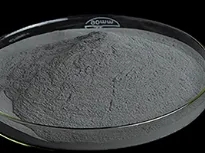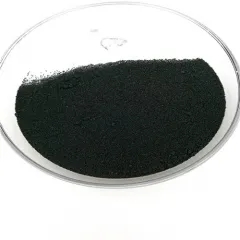Titanium disilicide (TiSi2), as a metal silicide, plays a vital duty in microelectronics, especially in Very Large Scale Assimilation (VLSI) circuits, due to its superb conductivity and reduced resistivity. It significantly minimizes get in touch with resistance and boosts existing transmission efficiency, adding to broadband and reduced power consumption. As Moore’s Regulation approaches its limitations, the introduction of three-dimensional integration modern technologies and FinFET architectures has actually made the application of titanium disilicide vital for keeping the efficiency of these sophisticated manufacturing processes. Additionally, TiSi2 reveals fantastic potential in optoelectronic tools such as solar cells and light-emitting diodes (LEDs), in addition to in magnetic memory.
Titanium disilicide exists in numerous stages, with C49 and C54 being the most common. The C49 stage has a hexagonal crystal structure, while the C54 stage displays a tetragonal crystal framework. Due to its lower resistivity (approximately 3-6 μΩ · centimeters) and higher thermal stability, the C54 phase is liked in commercial applications. Numerous methods can be made use of to prepare titanium disilicide, consisting of Physical Vapor Deposition (PVD) and Chemical Vapor Deposition (CVD). The most common technique involves reacting titanium with silicon, transferring titanium movies on silicon substrates through sputtering or evaporation, adhered to by Quick Thermal Handling (RTP) to develop TiSi2. This approach permits specific thickness control and consistent circulation.
(Titanium Disilicide Powder)
In regards to applications, titanium disilicide discovers extensive usage in semiconductor devices, optoelectronics, and magnetic memory. In semiconductor gadgets, it is utilized for resource drain calls and gate calls; in optoelectronics, TiSi2 stamina the conversion performance of perovskite solar cells and boosts their security while lowering problem thickness in ultraviolet LEDs to improve luminous effectiveness. In magnetic memory, Rotate Transfer Torque Magnetic Random Gain Access To Memory (STT-MRAM) based on titanium disilicide includes non-volatility, high-speed read/write capabilities, and reduced energy usage, making it an optimal candidate for next-generation high-density data storage space media.
Regardless of the significant capacity of titanium disilicide throughout different sophisticated fields, difficulties stay, such as further reducing resistivity, improving thermal stability, and establishing effective, cost-efficient large manufacturing techniques.Researchers are checking out brand-new material systems, maximizing user interface engineering, controling microstructure, and creating environmentally friendly processes. Efforts include:
()
Searching for new generation materials through doping various other elements or modifying compound make-up ratios.
Researching optimal matching systems between TiSi2 and various other materials.
Using innovative characterization approaches to explore atomic plan patterns and their effect on macroscopic homes.
Devoting to eco-friendly, environment-friendly brand-new synthesis routes.
In recap, titanium disilicide attracts attention for its terrific physical and chemical residential or commercial properties, playing an irreplaceable duty in semiconductors, optoelectronics, and magnetic memory. Dealing with growing technical needs and social duties, deepening the understanding of its essential scientific principles and checking out cutting-edge solutions will certainly be essential to progressing this field. In the coming years, with the development of more innovation outcomes, titanium disilicide is anticipated to have an even wider growth possibility, continuing to add to technical progress.
TRUNNANO is a supplier of Titanium Disilicide with over 12 years of experience in nano-building energy conservation and nanotechnology development. It accepts payment via Credit Card, T/T, West Union and Paypal. Trunnano will ship the goods to customers overseas through FedEx, DHL, by air, or by sea. If you want to know more about Titanium Disilicide, please feel free to contact us and send an inquiry(sales8@nanotrun.com).
All articles and pictures are from the Internet. If there are any copyright issues, please contact us in time to delete.
Inquiry us



